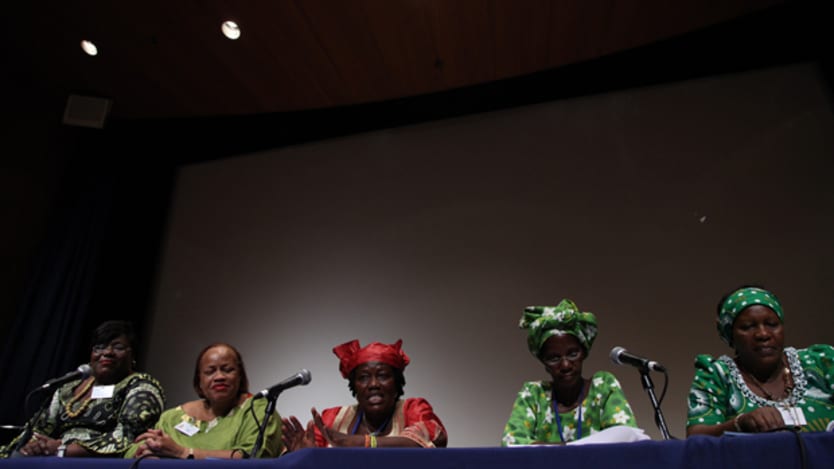
A week before the 58th session of the U.N. Commission on the Status of Women agreed to push for a stand-alone gender equality goal in the post-2015 development agenda, the United States, Russia and Caribbean nations attempted to dilute text in the outcome document that called for increased funding for women’s organizations that promote and advance women’s rights.
In the end, they did not succeed and the call for funding women’s organizations was preserved.
The struggle for funding of women’s rights organization is not new. Twenty-five years ago, three visionary women founded the Global Fund for Women — Frances Kissling, Anne Firth Murray and Laura Lederer. This innovative funding mechanism would ensure that in-country, women-led organizations would be funded directly. The founders knew then what we know now: Women’s human rights and dignity are central to the global development agenda.
Organizations like the Global Fund for Women are more important today than ever before because of pervasive violations of women’s rights and the continued lack of resources from traditional philanthropy for in-country organizations that advocate for women’s human rights. Newer private-public partnerships have increased global investments in women and girls, but corporate donors have been slow to fund politically challenging rights issues.
Undoubtedly, new partnerships and funding to increase girls education, expand access to clean cook stoves, advance women’s access to family planning and increase women’s economic opportunities are all critical interventions that contribute to the advancement of gender equality and development. But as long as women continue to fight for their basic human rights without funding to support their work, such innovations make gender equality elusive.
In a recent article in Reproductive Health Matters, Theresa McGovern responds to the new development framework proposed in a report submitted last year to U.N. Secretary-General Ban Ki-moon by a high-level panel of eminent persons. She rightly notes that its success “will require support for a potent mix of advocacy, movement building and a complex set of ground-based strategies that shift cultural practices, laws and policies that harm women and girls.”
True innovation for advancing gender equality and development means backing up the women who defend the human rights of women, supporting those who advocate to change discriminatory laws and eliminate harmful traditional practices and cultural norms. That means boldly advancing issues, as described by McGovern, that “cause discomfort to governments and international donors” — issues like marital rape, universal access to sexual and reproductive health services including safe abortion, early child marriage, LGBT rights and human rights of marginalized populations such as sex workers.
We need investments in innovative health and economic interventions, but we also need investments in women’s human rights. The Global Fund for Women and other woman-centered funds such as Mama Cash, FRIDA Fund, Urgent Action Fund for Women’s Human Rights, Astraea Lesbian Foundation for Justice, and others are critical to ensure that the promise of gender equality and development is not an illusion.
Want to learn more? Check out She Builds and tweet us using #SheBuilds.
She Builds is a month-long conversation hosted by Devex in partnership with Chemonics, Creative Associates, JBS International as well as the Millennium Challenge Corp., United Nations Office for Project Services and U.K. Department for International Development.
Search for articles
Most Read
- 1
- 2
- 3
- 4
- 5








